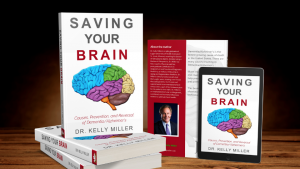Are your everyday products in your home polluting your brain?
How many everyday products in your home are hiding dangerous toxins that can potentially damage your body and brain? Discover where toxins commonly lurk and how they can harm your brain and neuropsychiatric well-being. This latest recall joins a laundry list of other products that have been pulled from shelves because they contain harmful toxins.
The brain is the most metabolically active organ in the human body. For this reason, your brain is at risk for damage from everyday toxins. You’re exposed to a host of chemicals, pesticides, fumes, and products everyday. Toxins can be found in the air we breathe (air pollution, automobile exhaust, cleaning fumes, mold), the substances we ingest (pesticides, artificial dyes and preservatives, medications, excessive alcohol), and the products we spray or rub on our skin (personal care items, cosmetics, beauty products).
Even our lungs, digestive system, and pores absorb these harmful agents, which can eventually make their way to the brain. And that’s where these toxins can harm the brain by decreasing cerebral blood flow, disrupting hormone production, causing imbalances in the gut microbiome, and even contributing to psychiatric symptoms.
Join Kelly Miller on August 16 at 6 PM ET on Zoom for a Live webinar on ADHD and Autism. This is a free event but registration is required. Click here to learn more.
So what can happen when we are exposed to these toxins? Toxins can also cause psychiatric problems as the following:
In addition to contributing to a host of physical issues—such as autoimmune diseases, diabetes, and cancer—toxins are a hidden cause of many mental health symptoms. For example, exposure to toxins can increase the risk of:
Healing Your Brain and Detox Your Brain
The greater your level of exposure to common toxins, the greater your risk of damage to your brain and mental health symptoms. How can you avoid toxins? In our world, it’s impossible to eliminate all offenders, however, you can reduce your risk. Considering how much time we spend in our homes, doing a thorough detox of your residence is a good place to start.
- Check all your personal care products and household cleaners to see if any of them contain harmful chemicals (like that recently recalled sunscreen). Get rid of anything that may be bad for your brain.
- We suggest using Think Dirty app that can help you identify household products you should toss. It rates products on a scale of zero to 10, with 10 being the most toxic.
- Don’t forget to look at what’s in your garage (such as paint, solvents, anti-freeze) and what you’re using on your lawn (such as weedkillers and pesticides).
- Rid your home of any cigarettes, alcohol, or drugs (including legal substances like marijuana) that contribute to brain toxicity.
Rehab your brain
If you interested in learning more about the advanced programs that are offered at Saving Your Brain centers that can help you determine the cause of your brain issues, contact us at info@savingyourbrain.com. Schedule a private telehealth call or chat with Kelly Miller, NMD to discuss which programs may be right for your child.
Here are some main services offered at Saving Your Brain after the Initial Brain Assessment is taken to determine which areas of the brain are imbalanced and affected.
Dr. Miller shares a personal story about mold infections
This is something I really want to pound the table to you people listening today. Everyone listening. We need to check for mold infections when people have chronic inflammation, brain fog, cognitive decline and there is a great website called www.survivingmold.com and under the diagnosis section there is a visual acuity test you can take for $15. It’s a great screening for mold infection. Then again they can follow up with mycotoxin tests.
When we look at the beta production we’re going to look at basically an abnormal physiology that is created making a beta. So our body produces beta all the time based on certain circumstances and one of those is chronic infections and being in Florida, one of the things I recently–I guess maybe it was two, two or three years ago, I found I had a chronic mold infection. I probably had it for several years. I remember going back now we had a when I was still living in Missouri, that we had a water leak in our house and one in four people are very susceptible to mold infection.


